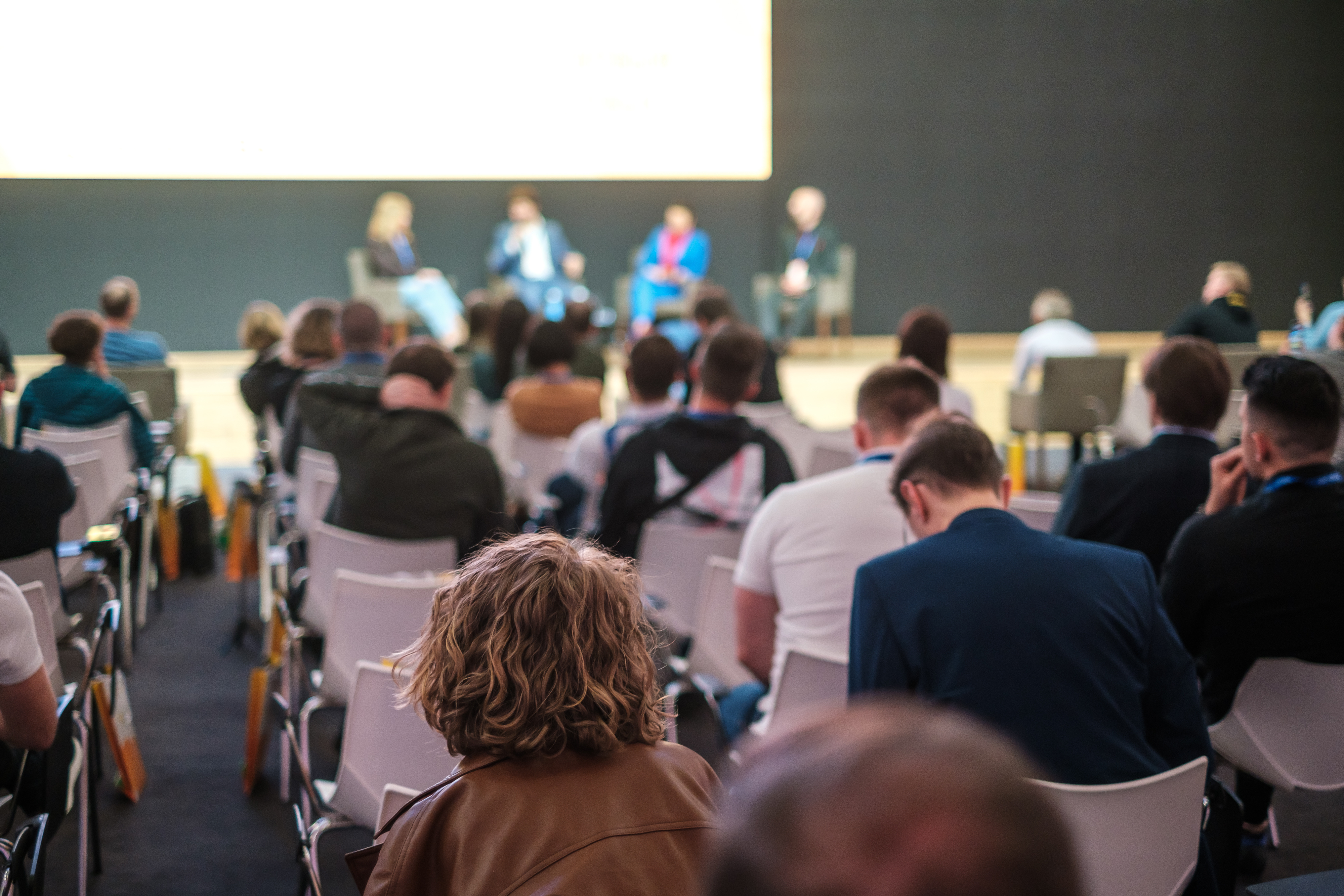Climate Change, Covid-19, or Cancer: Scientific views are an integral part of democratic debates. However, the way scientists engage in politics regularly leads to heated debates both within and outside academia. Some think that researchers are too hesitant and call for more activism. Others criticise just that, calling for more self-restraint and pointing out the many established democratic procedures through which scientific views can be voiced. On October 19th, we discussed the motivations, values, and potential impact of various types of activism with five panellists. With backgrounds in epidemiology, environmental sciences, or philosophy, they are all politically engaged in their own way.
The panel discussion in full length
Our Panellists:
Dr. Cyril Brunner is scientific researcher in climate physics at ETH Zürich. He is involved in a number of national and cantonal climate strategies and is part of the scientific advisory council of the glacier initiative, which aims to write the domestic net zero greenhouse gas emissions target into law.
Dr. Caspar Hirschi is professor of general history at the University of St. Gallen. He has extensively worked on the different roles of scientific experts and intellectuals in society from the enlightenment period to today. He is also a member of the Reatch advisory board.
Dr. Tanja Rechnitzer is a scientific researcher at the Leibniz University Hannover and board member of the scientific think tank “Reatch! Research. Think. Change.” One of Tanja Rechnitzer’s research focuse as a philosopher is the role of experts and expert knowledge in democratic society.
Dr. Marcel Salathé is professor of digital epidemiology at EPFL. He regularly worked at the interface of science and politics as a member of the former Swisscovid Taskforce and is Co-Founder of CH++, a political organisation with the aim to foster the scientific and technological competences of politics, administration, and society. In addition, he serves as a member of the Reatch advisory board.
Dr. Anaïs Tilquin was until recently a scientific researcher in evolutionary biology but is now working as an activist for the organisation “Renovate Switzerland”, which uses methods of civil disobedience in its fight against climate change.
The last years, months and even days have shown that scientific views are an integral part of democratic debates. Society is facing many different and complex challenges, and politicians have been turning to scientists for advice on how to tackle these problems. At the same time, more and more scientists are moving beyond their traditional role as advisors in order to become more proactive in bringing about societal and policy changes. Many feel it is their responsibility to not only create knowledge, but to also use this knowledge to tackle the most pressing challenges facing us.
We asked our panellists what role scientists should have in politics. The discussion made clear that there are various routes for scientists to engage in politics – all with their distinct advantages and disadvantages.
The relationship between science and politics and the roles(s) of scientists
According to Caspar Hirschi, a historian specialising in the relationship between scholars and politics, in Europe science has always been linked to politics: scientists have been influencing decision makers for centuries in different roles, as academics or scholars, representatives of scientific or political institutions, advisors or activists etc. However, Hirschi points out, increasingly one can observe a mixing of roles under the label of “experts”, with people simultaneously acting as policy advisors, public intellectuals, and political activists. In Hirschi’s view, this poses a risk to democratic decision making, because science is traditionally understood as a modest, sceptical (in the sense that it looks at problems in a critical way), and non-political enterprise – all of which is not compatible with deriving clear political imperatives from scientific findings, as some experts currently do.
Caspar Hirschi explains that in terms of mode of action, access to policy makers, as well as impact, advisors and activists are opposing roles, each with their own set of advantages and difficulties: The advisor, on the one hand, has the privilege of direct access to decision makers and requires a certain level of mutual trust.
“This relation of trust is based on a mutual understanding that those who have power do not have enough knowledge to decide, and those who do not have power have the knowledge to make decisions better.” (Caspar Hirschi)
Hence, direct access to decision makers puts researchers in a privileged position in terms of influencing policies: They can leverage the trust that decision makers put in them and their expertise to help enable good decisions. At the same time, mutual trust allows both sides to openly exchange views and opinions on particular matters without fear of indiscretions, thus allowing for a more constructive dialogue.
An activist, on the other hand, does not have this kind of privileged access. Their relationship to political representatives or institutions is, according to Hirschi, rather based on distrust. This assessment was indirectly confirmed by Marcel Salathé and Anaïs Tilquin in their introductory statements. Both expressed to differing degrees a mistrust in the competences (Salathé) and the willingness (Tilquin) of political decision makers to enact political change in the ways in which, in their view, it would be necessary to tackle current and future societal problems.
These differences between activists and advisors with regard to the level of access and trust to decision makers lead to clear differences regarding the mode of action. Activists, not being able to leverage a relationship of mutual trust with policy makers, resort to other means, most importantly public pressure to influence policies. As such, voicing public and usually harsh critique of decision makers is necessary to raise attention to particular issues.
In contrast to this, advisors need to be more cautious when it comes to publicly criticising political decisions. As their political power lies in a relationship based on mutual trust with decision makers, putting public pressure on the people one is advising can destroy exactly this trust – especially if information is leveraged that was only attained due to the privileged access as advisors. Advisors also have to be more nuanced and objective when communicating different scenarios, both to policy makers and to the public, as Cyril Brunner states. He adds that it is sometimes hard to remain neutral as an advisor when you have a strong personal opinion on an issue.
Do scientists have a duty to speak out?
Many scientists – especially in fields such as energy, climate sciences, or ecology – feel that they have a responsibility to communicate their knowledge and at times even to take action. When it comes to deciding the type of actions they want to or can take, they have to assess what the best way is to have a constructive impact.
For Marcel Salathé, scientific research, policy advice, and activism are not mutually exclusive. If researchers are clear and transparent regarding which “hat” they are wearing in a given situation, scientists can very well, and maybe even should, engage in all three of these roles. He adds that in his opinion, trust in science stems from its clear principles, not from being quiet.
“In my view, this works relatively well, and it is also part of the political game, right? You can be loud on the outside, and you have to be, if you want to be heard in the public, and then you can also work with people, you know, behind closed doors. [....] People are very loud on TV and social media, and then they go back to their job (be it in Parliament or somewhere else), and they will find compromises and work with each other where it's possible.” (Marcel Salathé)
Anaïs Tilquin insists that in the current system, it may be better for scientists to publicly talk about problems such as the climate crisis, even if not all the data is available just yet.
“Scientists are really good at putting a long list of caveats [in front of their statements]. Sometimes that list is not that long compared to other issues and that is when we should be comfortable with speaking out.” (Anaïs Tilquin)
According to Tilquin, scientists should also be critical about the decisions that are made by governments and other key stakeholders.
Tanja Rechnitzer feels that the role of scientists (as academic researchers) is not to make decisions, otherwise we move from a democracy to a technocracy. It is, however, legitimate for scientists to call out politicians if they are ignoring or misrepresenting scientific findings. This is part of their responsibility to provide a solid scientific basis for society. The direct integration of scientists into political institutions and federal administration is, according to Marcel Salathé, also a “more interesting” option than enrolling them in task-forces.
The personal history of several of our panellists also shows how these roles are not fixed, and stepping out of academic science to take on political responsibilities is indeed also a possibility.

Raising awareness and bringing about change
Although most of the panellists agree that the role of scientist and the role of political activist respectively should be well defined, this distinction becomes more difficult in a situation of crisis. Does the urgency of climate change require more radical means of political engagement like civil disobedience?
For Caspar Hirschi, provocative actions or civil disobedience are efficient to raise awareness, but are not well-suited for finding sustainable solutions. In addition, it is debatable whether people and politicians are not already largely aware of the potential consequences of climate change.
Anaïs Tilquin argues that in the particular situation of the climate crisis, seeing people getting out of their assigned roles may actually better convey the sense of emergency. She adds that for a long time now there has been pressure on academics to make them believe that they have to keep quiet in order to remain credible. This point was also supported by Marcel Salathé, saying that scientists might have been told to “stay in their lane” in the 1950s, but that today this should indeed not be the case anymore.
The Swiss political system, Cyril Brunner argues, specifically allows us to do things together as a society. That greenhouse emissions in Switzerland and most other European countries have in fact already peaked also shows that change is possible using existing democratic means.
“If we want to tackle climate change or if we want to achieve any of the sustainable development goals, we have to do this as a society. I see that we don’t have time: If we could stop emissions tomorrow, I would be very much in favour of that. [...] But it is not only about diffusing scientific knowledge but also about getting the public’s support.” (Cyril Brunner)
In this sense, science communication, although it might at times seem very removed from political engagement, plays an important role in shaping the public’s opinion on various issues and in the acceptance of the decisions that are being made. It can raise awareness to certain problems, but also to existing solutions, and shed a new light on public debates. Tiquin also describes the strong potential of citizen assemblies (where citizens gather to receive information from scientists to make policy recommendations) to create scientifically backed-up and publicly accepted policy recommendations.
Still, the case of climate change is a complicated one when it comes to the democratic decision making, Tanja Rechnitzer points out.
“Climate change is special because it is a global and inter-generational problem where our local democratic solutions might fall short in addressing the corresponding challenges. Hence, things are decided on a global level but these decisions are often not really democratically legitimated. [...] That is something that makes the situation so complicated in the climate case because you can also argue that there is a moral duty to stand in for people who otherwise do not get a voice. This is really difficult to do via democratic engagement in one state.” (Tanja Rechnitzer)
Trust in science and trust in democracy
In the end, it comes down to credibility and trust. A clear separation of the roles and prerogatives of the scientist, the advisor, and the activist may be important to preserve their credibility. But seeing scientists taking sides, having their own values and clearly stating their opinions (which often are based on their scientific knowledge) might make them seem more like “normal” citizens rather than isolated experts of their own field, which in turn can increase their credibility in the public sphere. Even though all participants in this debate agree on the urgency of the climate crisis, the views on and levels of trust towards our political institutions influence the opinion of each and everyone regarding the best way to engage in the public debate.
“I think we can have different forms of political engagement and they don't exclude each other. Even doing acts of civil disobedience certainly doesn't exclude [scientists] from being reliable researchers, even though it might preclude them from being advisors”, concludes Tanja Rechnitzer, stating that there are enough scientists working on climate change for them to go into different directions, from activism to being advisors.
Articles on the Reatch blog reflect the personal opinions of the authors and do not necessarily reflect those of Reatch or its members.


Comments (0)